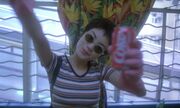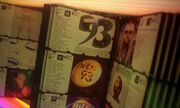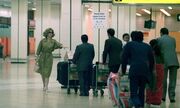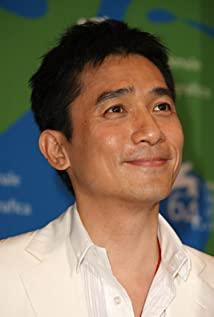(A bad article written three years ago)
At that time, we skipped class and hid in the dormitory building to watch movies. We pulled the curtains in anticipation of a little cinematic vibe. We watch "Farewell My Concubine", "Chongqing Forest", and "Sea Pianist". It was not until the other two roommates returned to the dormitory after class and lifted the curtains that we realized that night had come quietly.
This night also quietly draped on Cheng Dieyi, A Fei and 1900. We built a forest for ourselves in our dorm, and we wanted to be lost forever in this forest. In this forest, the leaves are brown and the sky is gray. (All the leaves are brown, and the sky is gray.) Milan Kundera's "Life Elsewhere" quotes Rimbaud's poem "The real life is always elsewhere" many times. Perhaps this is really a portrayal of the human condition: we are forever craving life elsewhere to escape the pain of living here. But this craving is only an illusory sustenance, and once we do go somewhere else, we begin to fantasize about other places. Because of this, the woman who fled to California finally returned to Hong Kong lonely; because of this, Cheng Dieyi finally no longer looked forward to a life elsewhere, but let herself die under the sword of Yu Ji; because of this, the piano Shi was always reluctant to disembark, and he clearly knew that life on land was not necessarily more real than life at sea. At that time, we hid in the dormitory building to watch movies, but we were very dissatisfied with our mediocre life. We long for twists and turns and long for passion. And now, we find that we miss the forest in the dormitory very much. Where the air is full of tranquility, where the lake is so clear.
View more about Chungking Express reviews











